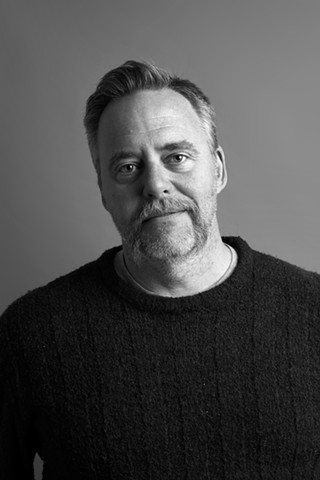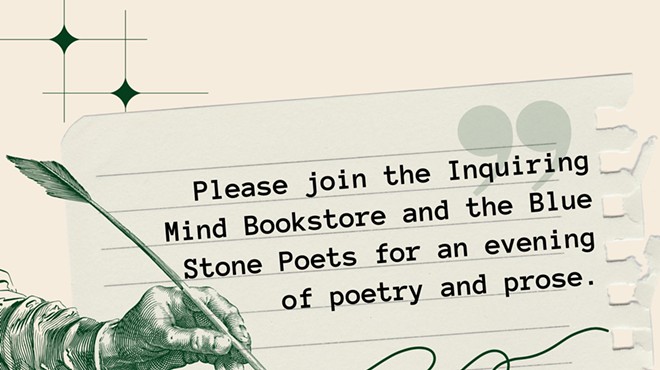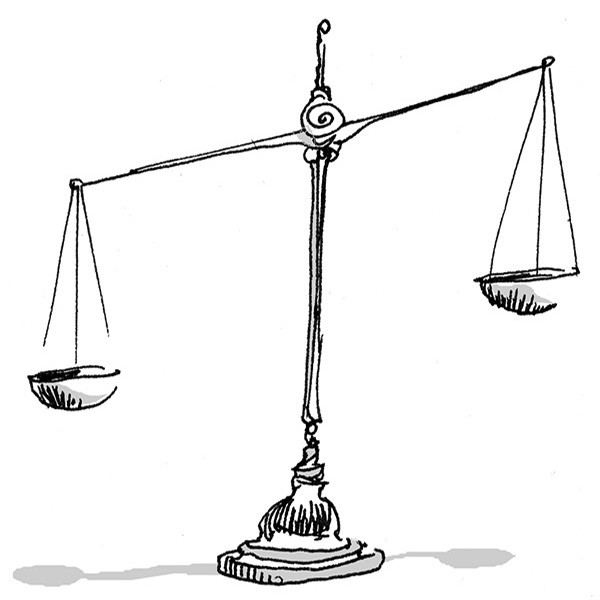The defining word for 2012 seems to be uncertainty. While we've always faced an unpredictable universe—just think of Thomas Hobbes description of humanity's early days: "nasty, brutish, and short"—this year has amounted to an ongoing experiment in anxious unknowing, especially in the past few months.
The presidential election was probably the cause of greatest tsuris for most of us, even until election night. No matter who you were backing, it was nerve-wracking to watch the returns and not see a clear winner emerge until late in the evening. Then there's the fiscal cliff that we are careering toward Thelma-and-Louise style: Will Congress reach a compromise? Will the military be gutted and entitlement programs cut down to size? Will the mainstream media ever stop using fear tactics to create buzz around stories?
On the environmental front, after Superstorm Sandy's demonstration of nature's growing displeasure with us, another source of great disquiet has been the specter of hydraulic fracturing. Will we or won't we? While an amazing grassroots campaign has been mobilized to lobby for a permanent moratorium, Governor Cuomo, who's been a bit inscrutable on this subject, holds all the regulatory cards. (On a related note, the International Energy Agency predicts that the US will overtake Saudi Arabia by 2017 as the world's top oil producer, due mainly to reserves freed up by fracking [While You Were Sleeping, page 20]).
And don't forget about Hostess Brands. As of press time, we still don't know what will become of our beloved chemically enhanced treat, the Twinkie. (As someone told me recently: "If Twinkies don't exist, then a part of my childhood ceases to exist as well.")
It's useful to remember at times like this that the flip side of uncertainty is opportunity. (Of course, Werner Heisenberg would be happy to tell you—I mean he's dead, but still—that there's a fundamental limit to the precision that can be brought to knowing anything about the way the universe works. Uncertainty is a fact of physics, and physics is just a scientific description of this thing we call existence.) When the universe is unsettled, as it generally is, then possibilities heretofore unimagined can emerge. Looking back on this year in Chronogram, we published many stories featuring ways in which crisis was converted into opportunity. Below are some of the highlights.
Small-City Retirement
In our October issue, we profiled Nora Strano and Rich Morris, who traded in their sprawling New Paltz home for a commercial building in Uptown Kingston in 2010. The couple were prompted by a desire to downsize for their impending retirement while receiving passive income from tenants (in essence, a nonliquidating retirement fund) and still providing space for their three sons, who live at home. Strano and Morris also saw the opportunity that urban life can offer, especially as we age, providing a healthy, walkable environment and a solution to the sometimes isolating effects of suburbia. (In the current issue, Jennifer Farley profiles Linda and Scott Marston-Reid, empty nesters who've transformed a Poughkeepsie apartment into an artistic showpiece ["Loft Life," page 26].)
The Cider Renaissance
A corollary to the old maxim about what to do when life gives you lemons: What happens to Hudson Valley apple farmers when the market is flooded with cheap imported apples? You make cider! In our November issue, Peter Barrett spoke to a younger generation of local farmers who are turning their parents' crop into the beverage of our forefathers—who drank the stuff like it was going out of style. (Which it did once Prohibition hit and the orchards of bitter apples used for making cider were replaced with sweet table varieties.)
Turn, Turn, Turn
In April, Paul McGinniss wrote about the Transition Movement, which is a (oxymoron alert) proactive reaction to concerns about upcoming societal fissures due to Peak Oil and other apocalyptic possibilities. Instead of building bunkers to seal themselves off from society, Transitioners prefer to create local resiliency through mutual interdependence with community gardens, alternative energy sources, and the intelligence and resources of neighbors actively planning for the challenges to come. The Transition Towns movement is taking hold in the Hudson Valley, with groups continuing to form around a shared future rooted in collective action.
He Shall Be Levon
The greatest story to come into the popular consciousness this year chronicling a triumph over adversity was Levon Helm's. Diagnosed with throat cancer in 1998, the former Band drummer began a series of concerts in his home studio in Woodstock to pay for his medical care. The Midnight Ramble Sessions drew world-renowned artists to play with Helm (Elvis Costello, Norah Jones, Dr. John) and the intimate evenings in the barn are now the stuff of legend. When Helm died in April, we were lucky enough to feature previously unpublished photographs of Helm by Catherine Sebastian.
The Illusion of A Classier Reality
We cover an eclectic mix of topics each month, but one thing we don't do is local news—that particular type of ass-in-the-seat-at-town-board-meetings reportage that's essential for an informed citizenry and the successful functioning of the republic. Geddy Sviekauskas, who founded the Woodstock Times 40 years ago, has built a mini-empire of local papers in Ulster County that serve as news sources, bulletin boards, and community forums. In an interview for our September issue, Sviekauskas offered my favorite bit of criticism directed at Chronogram this year: "The aim seems to be for it to produce an illusion of a classier reality rather than that reality which reflects the communities it serves." The newspaper publisher sees us through his meat-and-potatoes-journalist lens, which is understandable. But I would counter that what Sveikauskas sees as Chrongram's "illusion of a classier reality" is really our attempt to suggest alternative possibilities not yet realized. The future is merely the set of things we haven't done yet, full of opportunities that remain uncertain until we muster the courage to release them into the world.
Special thanks to Hilary Chalmers for her help with the uncertainty.


















